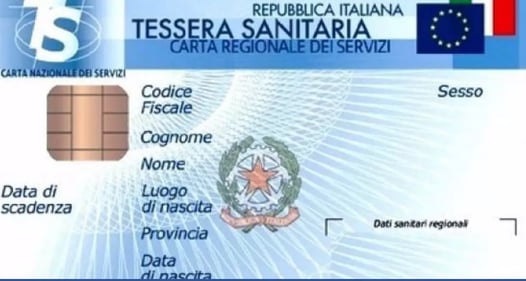How to Get a Codice Fiscale as a Foreigner in Italy
This article explains how to obtain a Codice Fiscale in Italy, a vital tax code needed for activities like opening a bank account, signing contracts, and accessing healthcare. It covers the required documents, the application process, and common mistakes to avoid, providing essential tips for foreigners planning to stay in Italy.


Getting a Codice Fiscale is one of the first things you must do when moving to Italy, whether for work, study, or long-term travel. It’s a fundamental requirement for participating in any official activity in the country.
1. Understand What the Codice Fiscale Is
The Codice Fiscale is Italy’s version of a tax identification number. It’s used by both residents and foreigners for numerous activities, such as opening a bank account, signing a lease, accessing healthcare, and even purchasing a SIM card.
Without a Codice Fiscale, you won’t be able to engage in many essential activities. This makes it one of the first things you should handle upon arrival in Italy, regardless of the length of your stay.
2. Know Who Needs a Codice Fiscale
Anyone who plans to stay in Italy for an extended period—whether as a tourist, student, worker, or resident—needs a Codice Fiscale. This includes:
• Foreign workers: Whether you’re a freelance professional or working for a company, you’ll need this code to sign contracts and get paid.
• Students: If you’re studying at an Italian university or language school, you’ll need it for registration.
• Short-term tourists: If you plan on renting property, purchasing goods or services, or using public services, you’ll need the Codice Fiscale.
Getting this tax code early will save you time and avoid bureaucratic issues later on.
3. The Documents You Need to Apply
To apply for your Codice Fiscale, you must have the following documents:
• Passport: A valid passport is the primary document for foreigners.
• Visa or Residency Permit (for non-EU citizens): If applicable, you must present a visa or residency permit.
• Proof of Address: This can be a lease agreement or utility bill that shows where you’re living in Italy.
If you forget or lose any of these documents, your application will be delayed, so it’s critical to have everything ready when you apply.
4. How and Where to Apply
You can obtain your Codice Fiscale from the Agenzia delle Entrate (Revenue Agency). Here’s how:
• In person: Visit the nearest Agenzia delle Entrate office. Bring the required documents, and you can apply on the spot. You’ll typically receive your code within a few minutes.
• Online: If you’re not yet in Italy, you can request the Codice Fiscale from your local Italian consulate in your home country. The process may take longer, but it’s still an option for foreigners who are not yet in Italy.
Note that, depending on where you are, appointments may be required. It’s a good idea to check ahead before showing up.
Agenzia delle Entrate Website:
5. Common Mistakes to Avoid
While getting a Codice Fiscale is relatively straightforward, many newcomers make the following mistakes:
• Missing documents: Not having all the required paperwork is one of the most common reasons people are turned away. Double-check that you have your passport, proof of address, and any other necessary documents.
• Not planning ahead: Depending on your location in Italy, wait times at the Agenzia delle Entrate can vary. Be prepared for potential queues and delays.
• Waiting too long: The Codice Fiscale is necessary for so many daily tasks in Italy. Putting it off could delay your ability to settle in or start working.
By preparing in advance, you can avoid these common pitfalls.
6. What to Do After You Get Your Codice Fiscale
Once you have your Codice Fiscale, you’ll use it throughout your time in Italy. Here are a few steps to take:
• Store it safely: Keep your Codice Fiscale in a secure place, as it’s essential for many processes in Italy.
• Use it immediately: You’ll need this number to sign contracts, set up utilities, and perform other daily tasks. Make sure to keep it handy and use it as soon as required.
• Update when necessary: If you change your address or status in Italy (such as transitioning from a tourist visa to a work visa), make sure to update your details with the Agenzia delle Entrate.
The Codice Fiscale is a permanent number. You’ll keep it for life, even if you leave Italy and return in the future.
7. The Importance of the Codice Fiscale in Daily Life
In Italy, the Codice Fiscale is more than just a tax number; it’s required for almost all formal activities, making it essential for your daily life. It allows you to:
• Sign contracts: Whether you’re renting a home or joining a gym, you’ll need it.
• Access public services: Register for the healthcare system or set up utilities.
• Buy a car or insurance: Even if you’re just visiting or staying for a short time, this code is necessary for many transactions.
Not having a Codice Fiscale can make it impossible to integrate into Italian society fully, so get it as soon as possible.
The Codice Fiscale is an indispensable tool for anyone living in Italy, regardless of whether you’re staying for a short or long period. By understanding what it is, knowing how to get one, and avoiding common mistakes, you’ll be well on your way to navigating Italy’s bureaucratic system with ease. Start the process early, gather your documents, and ensure you get your Codice Fiscale as soon as you arrive—it will make all the difference in how you live and work in Italy.
